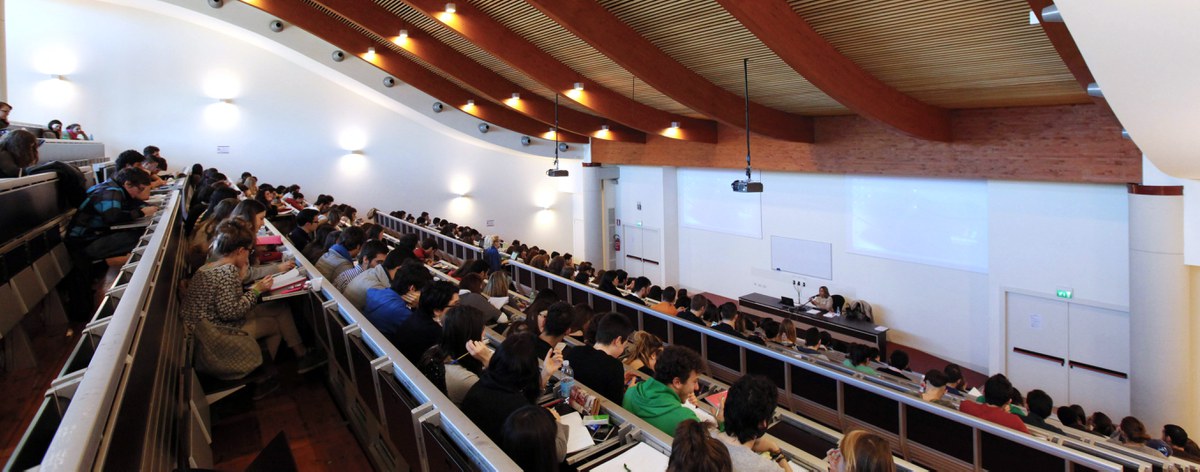Summer and Winter Schools
The Summer and Winter Schools are intensive courses, designed to meet new needs for cultural and interdisciplinary analysis.

Transnational litigation: cross-border litigation and international arbitration
The relevance of tort litigation at a transnational level is growing. The diffusion of online activities around the world and the globalisation of economic and financial activities lead to an increase in cross-border tort disputes that involve issues of transnational jurisdiction, private international law and remedies available to the damaged parties.
This Summer School is specifically dedicated to these topics with both a theoretical and a practical approach. An in-depth examination of these fundamental aspects of cross-border tort litigation will be offered to participants through traditional lectures and an interactive workshop.
The Faculty of the Summer School is composed of US and EU experts in this area of the law in order to provide a comparative perspective to the participants.
The US perspective will be centred on procedural remedies for mass torts (class actions) and on the assumption of jurisdiction in transnational toxic tort litigation (eg asbestos and tobacco tort disputes).
The EU part of the programme will deal with Regulation no. 1215 of 2012 as concerns jurisdiction in tort claims and Regulation no. 864 of 2008 in relation to the law applicable to transnational tort disputes.
In particular, art. 7, no. 2 or Regulation no. 1215 on tort jurisdiction will be analysed in relation to specific areas of application (eg online defamation, IP litigation, economic and financial damages).
The Summer School is for law students as well as law graduates and lawyers who want to acquire specialised knowledge in this complex and fascinating area of international civil procedure.
Multilevel strategies to combat labor exploitation and undeclared work
The Summer School, usually in mid-September, is held at the Department of Legal Studies in Ravenna. It is directed by Prof. Francesca Curi.
Organised in collaboration with the Municipality of Ravenna, it includes 30 hours of lectures and workshops with university professors, professionals and experts in the field.
Generally there are 60 places available and participation is free with compulsory registration. In the process of being accredited by CROAS Emilia Romagna.
Labour and legality
The Summer School is directed by Prof. Stefania Pellegrini and is held in Bologna, usually in the central week of September.
The topics dealt with are:
- Sociological and legal problems in the working world
- Legal analysis of issues related to the working world
- Analysis of the course topics carried out by the CGIL
The summer school is for students who have earned their three-year and master's degrees. All diplomas are also admitted only in the presence of qualified, documented professional experience or documented post-graduate training in the subjects covered by the course.
FOR MORE INFORMATION
Summer School LEX
The school seeks to provide knowledge of the most significant ICT standards emerging for legislation, judiciary, parliamentary and administrative documents. The course provides an understanding of their impact in the different phases of the legislative and administrative process, awareness of the tools based on legal XML standards (Akoma Ntoso, LegalRuleML) and their constellations (Ontology, UNDO), and the ability to participate in the preparation and use of standard-compliant documents throughout the law-making process. In particular we would like to increase the awareness of stakeholders in the legal domain about the benefits and possibilities provided by the correct usage of Semantic Web technologies like XML standards, ontologies, natural language techniques applied to legal texts, legal knowledge modelling and reasoning.
FOR MORE INFORMATION
AI & Law Summer School
The Summer School examines the following topics:
- Story of AI & Law, including a very brief history of AI
- Knowledge-based systems for representing regulations, including their application in public administration and regulatory compliance
- Models of legal arguments, including case-based and logic-based approaches
- Evidential reasoning, including argumentation-based, scenario-based and Bayesian approaches
- Retrieving and analysing legal texts including case retrieval, discovery, information extraction, document analysis and design and network analysis
- Predictive models, including predicting outcomes of cases, crimes and recidivism
FOR MORE INFORMATION
Summer School on Law and Logic
This six-day course offers a detailed presentation of propositional and predictive deductive logic, as well as the use of logic to capture deontic representation and the Hohfeldian mode, analogical reasoning and inference of the best deployment. It also presents some aspects of non-deductive reasoning in law, such as unfeasible reasoning, including patterns of argumentation and inductive reasoning. Throughout the course we pay close attention to how these discussion methods can help legal analysis.